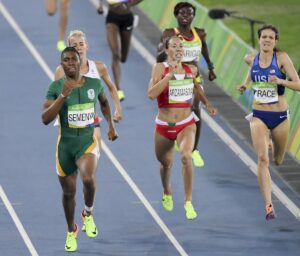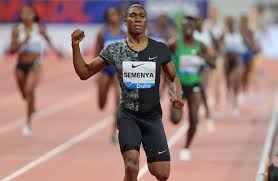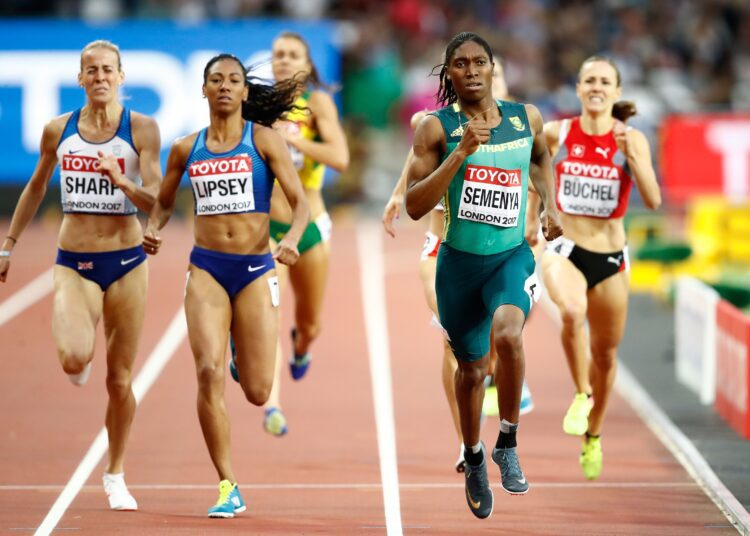CAPE TOWN, South Africa – Caster Semenya failed in her latest attempt to achieve an Olympic qualifying time for the 5,000m.
The South African finished in fourth, running 15:50.12 in Belgium which is short of the 15:10.00 qualifying mark required for Tokyo 2020.
Forced out of her favorite race by World Athletics’ testosterone rules, the two-time Olympic champion in the 800 meters took a late shot at qualifying for Tokyo in the 5,000 meters, an event not affected by the hormone regulations. She came up short.

Now 30, Semenya’s hopes of making it back to the Olympics are dwindling, AP reported.
The South African once said she wanted to run at top track events until she was 40.
Now, her future ambitions depend on a final, long-shot legal appeal of the testosterone rules or transforming from the world’s dominant middle-distance runner into a successful long-distance athlete. That’s going to be hard for her.
Semenya is the athlete that has perhaps stoked the most controversy in track and field over the last decade.
If there are no more appearances on the biggest stage, it’s been a career like no other. In 12 years at the top, Semenya has won two Olympic golds and three world championship titles, but her success has come amid near-constant interference by track authorities.
She has only competed free of restrictions of one type or another for three of those 12 years.
Just this week, two 18-year-old female athletes from Namibia were barred from competing in the 400 meters at the Tokyo Olympics after they underwent medical tests and it was discovered they had high natural testosterone levels. One of them, Christine Mboma, is the world under-20 record holder.

The two runners that finished second and third behind Semenya at the 2016 Olympics, Francine Niyonsaba of Burundi and Margaret Wambui of Kenya, have said publicly they also are affected by the testosterone regulations and have been banned from the 800, too, unless they undergo medical intervention. Niyonsaba has qualified for the Olympics in the 5,000 meters.
Semenya has been clear that the rules won’t force her out of track and she’ll keep running and keep enjoying the sport, even if she can’t go to the biggest events.
“Now is all about having fun,” she said at a meet in South Africa in April. “We´ve achieved everything that we wanted` all the major titles` inspiring the youth.”
“For me, it´s not about being at the Olympics,” she said. “It´s being healthy and running good times and being in the field for the longest.”






Discussion about this post